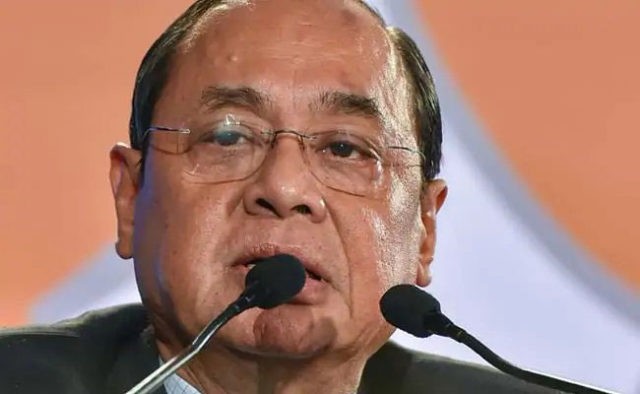
It’s been a busy month for Chief Justice of India, Ranjan Gogoi, having already delivered several key verdicts including the landmark Ayodhya judgement, settling a 170-year dispute. CJI Gogoi is set to retire on November 17 when he turns 65 and will be replaced by Justice SA Bobde. CJI Gogoi was sworn into the Supreme Court in October 2018, taking the mantle from the outgoing Justice Dipak Mishra.
The Supreme Court judge, who hails from Assam, is also the first judge from the Northeast to assume the position of the Chief Justice of India. Born to Keshab Chandra Gogoi, a former Chief Minister of Assam, the outspoken SC judge, followed in his father’s footsteps, pursuing law and joining the Bar in 1978. He cut his teeth practising at the Gauhati, Punjab and Haryana High Courts, before being appointed as an apex court judge on April 23, 2012.
CJI Gogoi has chaired Supreme Court benches that have delivered numerous important verdicts over his tenure. Here, we take a look at some of the key verdicts that make up the outgoing judge’s legacy.
Ayodhya verdict
Touted by some as among the most important judgements in India’s democratic history, a five-judge Bench chaired by CJI Gogoi put an end to a long-standing dispute between Hindu and Muslim parties, over a 2.77-acre plot of land in Ayodhya, believed by Hindus to have comprised the birthplace of Lord Ram. On 9 November, the Bench delivered a unanimous verdict, granting the rights of the land to the Hindu litigants in the case, while directing the government to allocate a 5-acre plot of land to the Muslim parties, for the construction of a mosque.
Govindaswamy v. State of Kerala
CJI Gogoi was also part of a three-member bench that commuted the sentence of the accused, in the trial of Govindaswamy v. the State of Kerala. Following the brutal rape of a 23-year old girl, who ultimately succumbed to injuries, the accused had been convicted of both, rape and murder, and handed a death sentence by the High Court of Kerala. However, the Supreme Court bench could only determine that “the intention of the accused was to make victim sub-conscious or in a supine position so that she does not protest and resist when he commits the sexual intercourse with her”. Govindaswamy was acquitted of the charge of murder, and his sentence commuted to a life sentence.
Contempt of Court against Justice Markandey Katju
In an unprecedented move, an SC bench headed by CJI Gogoi issued a contempt of court notice against former Supreme Court judge, Justice Markandey Katju. In a Facebook blog post, Katju had criticised the Judiciary for its decision-making in the Govindaswamy v. State of Kerala case, which the Supreme Court took cognisance of. What unfolded was a heated exchange between Katju and the SC Bench, leading to CJI Gogoi charging Katju with contempt of court, and having security escort him from the Court. Katju eventually offered an unconditional apology which was accepted by the apex court.
Rafale case
In a unanimous verdict delivered on 13 November 2019, a three-judge Bench that included CJI Gogoi dismissed review petitions alleging irregularities in a deal structured by the Narendra Modi-led government and Dassault Aviation for the purchase of 36 Rafale aircraft. The Court dismissed the case claiming it was not “within the purview of judicial review”. The verdict was concurrent with the previous judgement on December 14, 2018, before former Union ministers Yashwant Sinha and Arun Shouri, along with the lawyer, Prashant Bhushan, filed their review petitions.
CJI Office under RTI ambit
On November 13, 2019, CJI Gogoi was part of a five-judge Bench that judged that the Office of the Chief Justice of India should, in principle, come under the Rights to Information safeguards. The Bench did state though, that the ruling must be enforced on a case-by-case basis. The Bench stated that “the independence of the Judiciary was not a privilege, but a responsibility.”


.jpeg)

